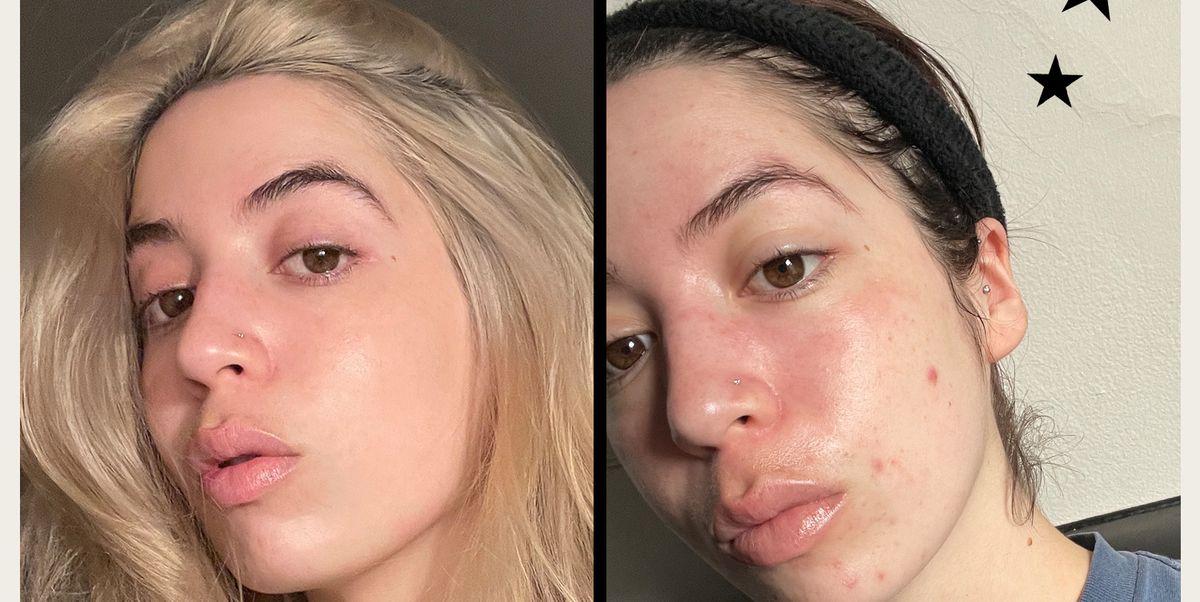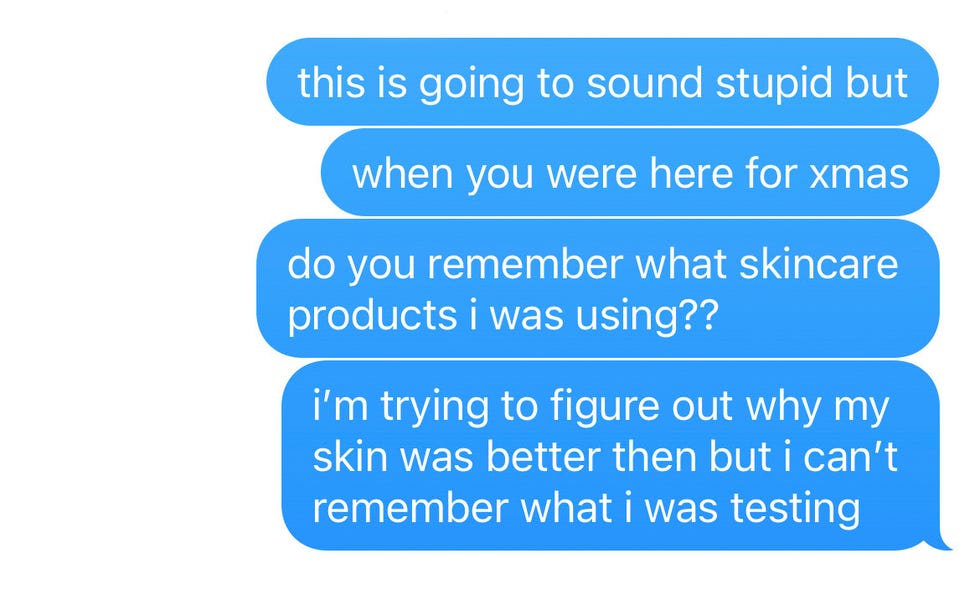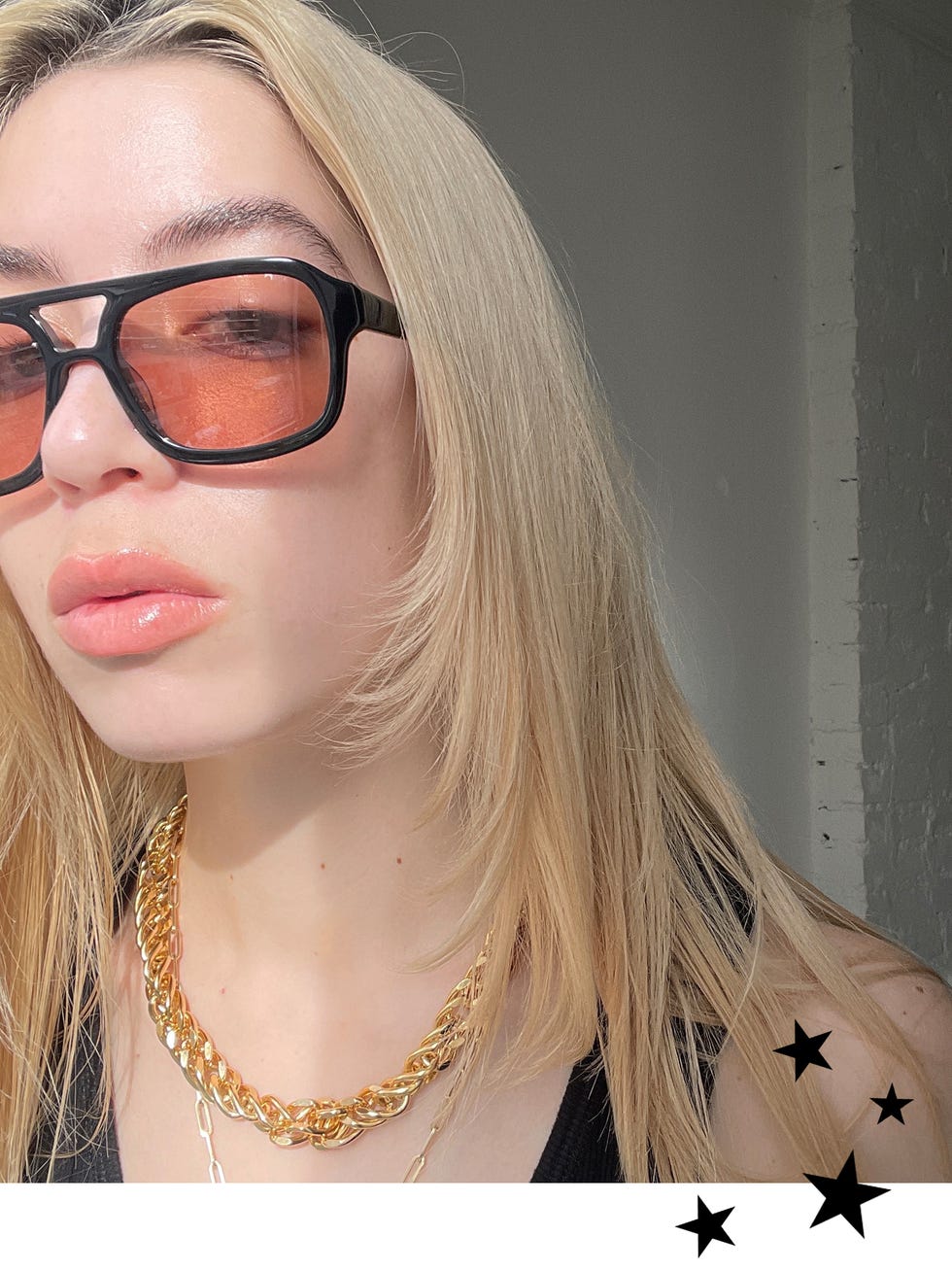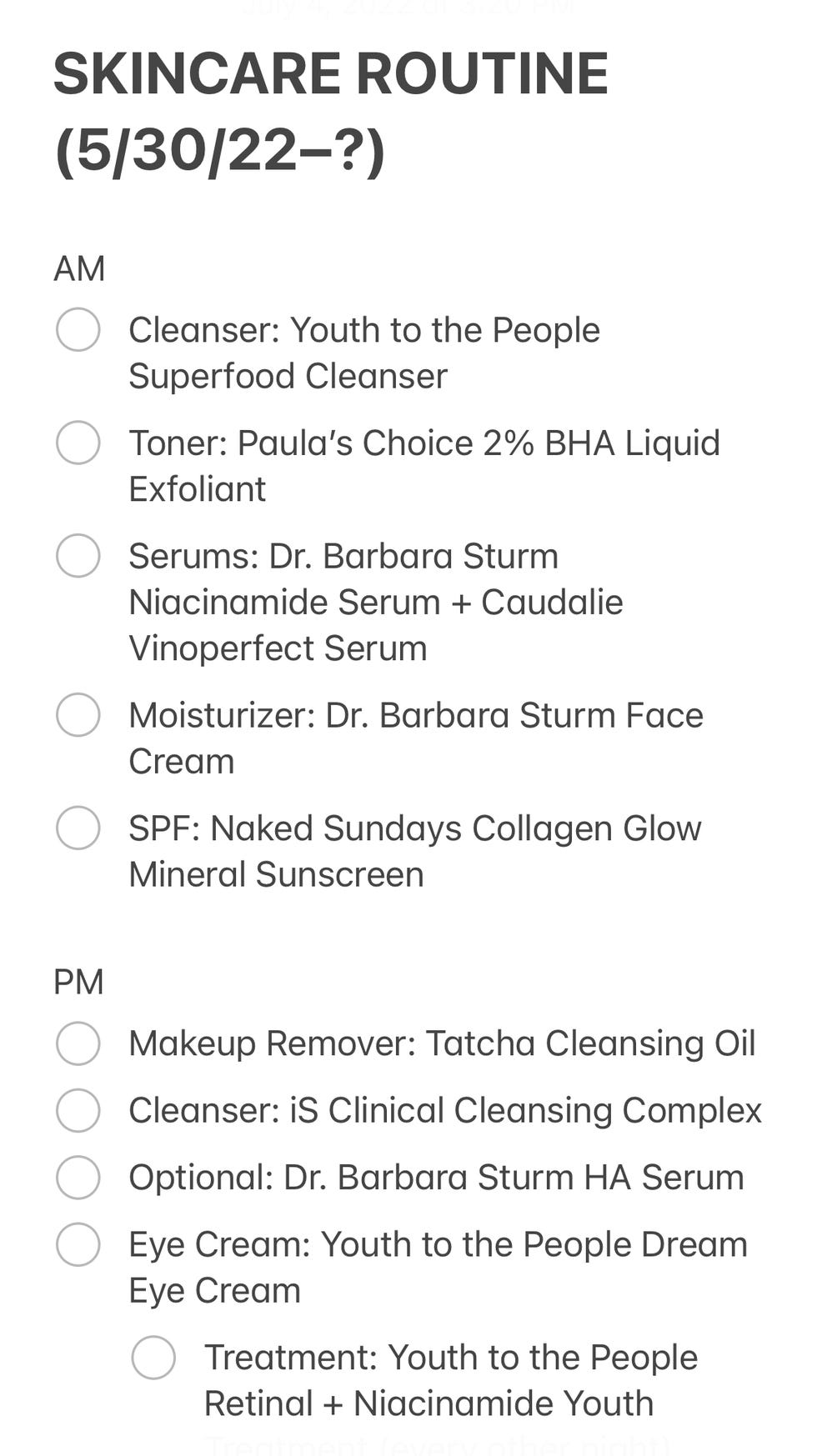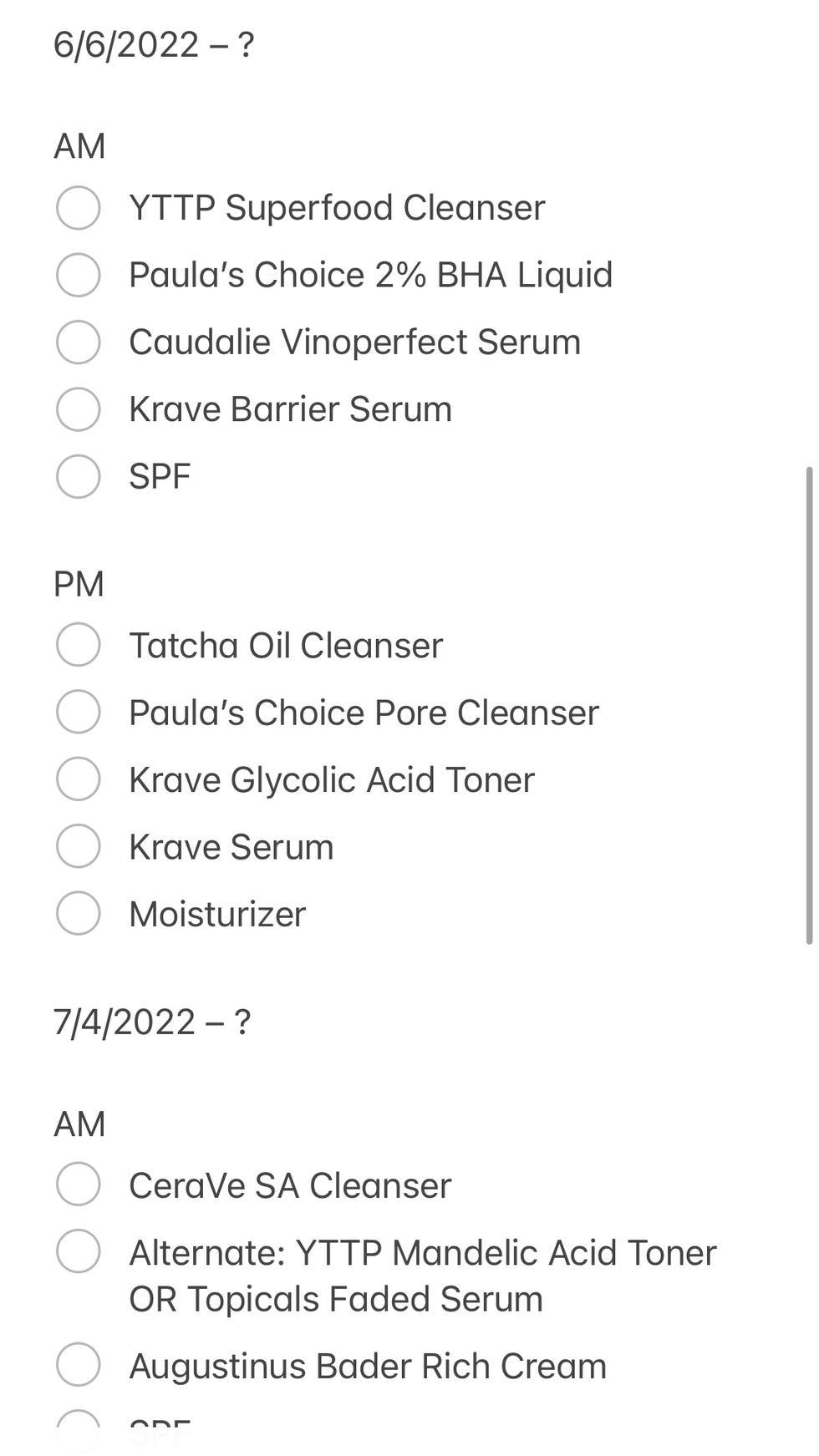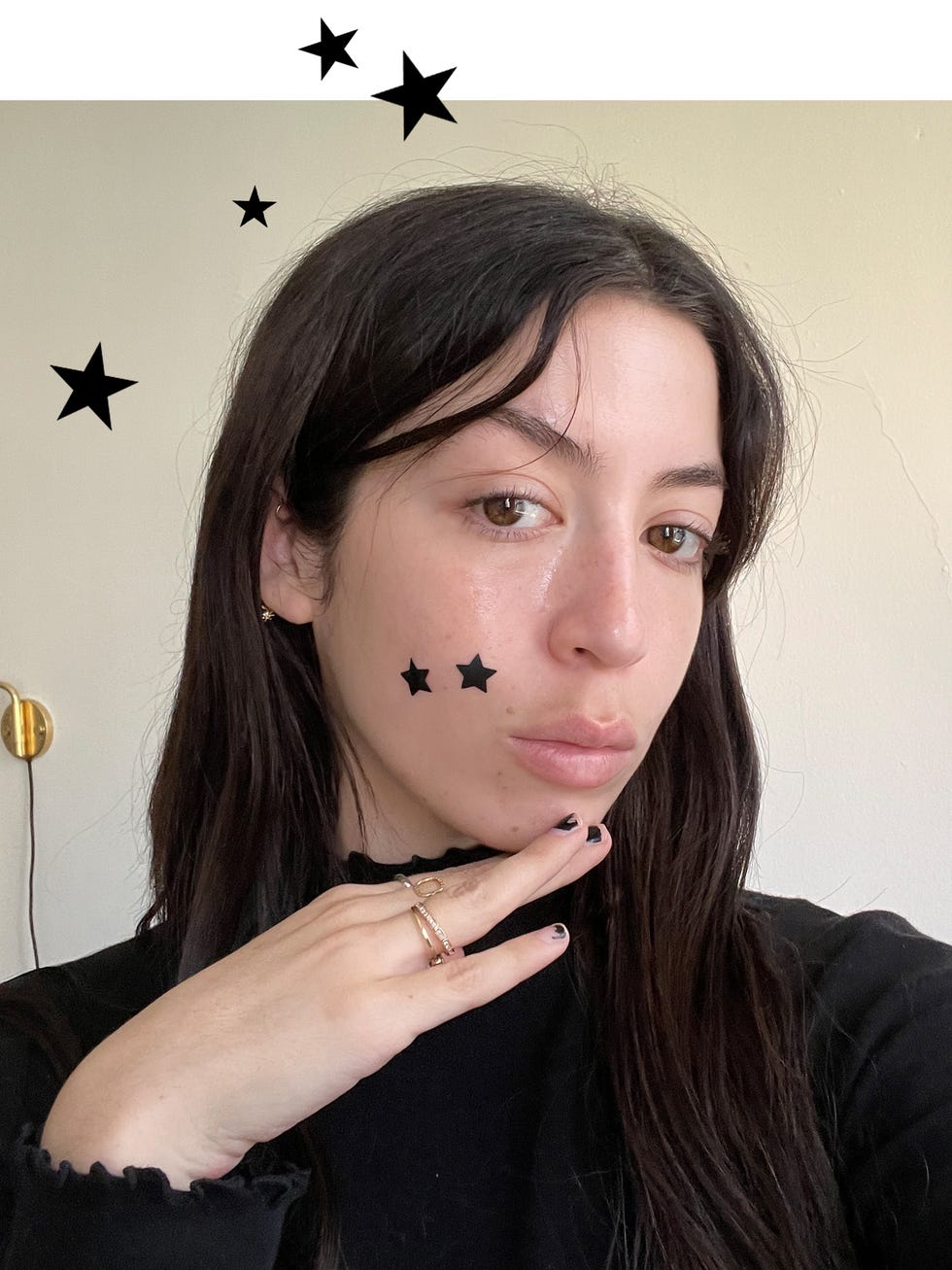When I look back at photos of myself, I’m furious with myself for wasting so much time and energy examining every pore. Despite my critical inner monologue that likes to think things like, ‘Ew look at that forehead wrinkle,’ the fact is, I’ve had good skin my entire life. Because I’ll spend the rest of this story complaining, let me get this out of the way: I’m lucky! Of course, I’d get a breakout from time to time, but on most days my skin could chug along like a charming middle child, needing no attention because the other kids (my hair, my body, my nails) were the problem children, always demanding something from me.
And then, almost exactly a year ago, my favorite, easy middle child decided enough was enough. It started with a painful breakout on my chin (one of those deep-rooted, invisible pimples that suuuuuck), and by the time it healed, something was happening on my cheek. And then my other cheek. And then my chin again. Out of nowhere, after twenty-four years of being near-perfect, my skin threw a fit.
I’m a beauty editor, which comes with a host of pros and cons. Cons: I spent months trying to remember which products I’d been using in December, when my skin still loved me. My friend Isabel spent the Holidays with me, so I texted her: “This is going to sound so stupid, but when you were here for Christmas, do you remember what skincare products I was using? I’m trying to figure out why my skin was better then, but I can’t remember what I was testing.” She didn’t remember but suggested I keep a skincare journal to keep track.
It might sound melodramatic, but the truth is, I panicked. I became absolutely obsessive, taking photos of my skin daily, writing down every product I used (which I probably should’ve done earlier anyway), and diagnosing myself with various skin diseases on TikTok. I washed my pillowcases constantly, I swapped out my hand towels, and I changed my diet and my skincare routine on a whim. And nothing I did made a difference at all.
I sat my then-boyfriend (now fiancée) Willem down for a war council. “Okay,” I told him. “We need to go over everything that happened between December and February and figure out what changed.” We discussed laundry detergents, stress levels, flights, and expired makeup. And then Willem looked up at me with a dawning expression and said, “In January we got Covid.”
Lucky, again: Covid wasn’t bad for me. The morning after New Year’s–January 1st, 2022–Willem got sick. About a week later, I caught it. I was very congested, even more anxious, but overall, it was nothing to write home about. We recovered quickly, and I didn’t think much about it. And I certainly didn’t think it could be the cause for my new breakouts. Is that even possible?
The link between acne and the pandemic isn’t new. “Due to increased contact with personal protective equipment and excessive personal hygiene, some conditions that have emerged are contact dermatitis, itchy or irritated skin, pressure urticaria, and exacerbation of preexisting acne and dermatitis,” says Dr. Dendy Engelmen, a dermatologist and cosmetic surgeon working in New York City. But beyond “maskne,” could the virus actually be triggering long-lasting skin conditions?
Covid is new. And the fact is, it will probably be years–decades–before we fully understand its impact on our bodies. “We know that Covid has larger effects on the body beyond the initial lung issues that we don’t completely understand,” says Dr. Joshua Zeichner, MD, Associate Professor of Dermatology and the Director of Cosmetic & Clinical Research in Dermatology at Mount Sinai Hospital in New York City. “I have seen a variety of rashes likely related to Covid, but after the infection resolves, many patients continue to complain of issues like new onset acne or rosacea, or eczema-like rashes or hives.”
For the moment, the link between skin reactions and Covid isn’t definite. But doctors are seeing it more and more often. “I have seen many new and worsening cases of psoriasis and eczema for example in patients after they recovered from Covid,” says Dr. Karan Lal, a double-board certified pediatric and cosmetic dermatologist based out of Scottsdale, Arizona. “One of the biggest complaints I have heard post-Covid is dry skin. I have also had many women complain of new onset hormonal acne on their chin and jawlines which they never had before. Interestingly, there are also patients that have lost their ability to respond to Botox and other neuromodulators.”
It’s not just skin, either. People tell me about their thinning hair, changes with their menstrual cycles, or unexplained weight changes. “We know Covid is associated with long-term changes in our immune system,” says Dr. Lal. “I suspect it is the shift in the immune system and skin microbiome that is responsible for some of these changes.” And yet, so much is still unknown. “We just don’t understand why some people’s immune systems react more strongly to the virus than others,” says Dr. Zeichner. “This is especially true of other manifestations that we’re seeing related to exposure to the virus. It’s as if the infection sets off the chain reaction we don’t fully understand, leading to changes in the skin.”
My initial suspicion was that Covid somehow messed with my hormones. “We know that androgen hormones in our bodies impact the Covid infection, perhaps explaining why men are typically more affected than women,” Dr. Zeichner adds. Androgen hormones are the guys responsible for sebum production in the skin. “It is unclear whether the infection ultimately has any long-term effects on hormone production. Anecdotally, I can tell you that in testing hormone levels of my patients coming in with new acne after Covid, I personally have not seen any uptick in hormonal abnormalities. Perhaps any new onset acne may be related to a change in the immune system, reacting more to acne, causing bacteria on the skin.”
So let’s say Covid could be the cause. How long till my body re-calibrates? For Dr. Zeichner, he’s seen patients who’ve experienced changes “For months, or even years.”
The pros of being a beauty editor: I have access to some of the best experts in the field. “If you are experiencing new or unexpected changes in your skin, the best thing to do is to see your dermatologist to get to the bottom of what’s going on, and discuss ways of managing or treating any skin issues,” recommended Dr. Engelmen. My dermatologist, Dr. Lal, prescribed Twyneo, a new-ish prescription acne cream that combines benzoyl peroxide and tretinoin to dramatically reduce breakouts. My favorite aesthetician, Biba de Sousa, helped me eliminate comedogenic ingredients from my skincare routine with her Pore Clogger Checker, and I vastly simplified my skincare routine into just a gentle cleanser, moisturizer, SPF, and my prescribed topical medication.
In December, my skin became stable enough to stop applying Twyneo every day. Right now, I’m keeping my routine simple (and consistent) with a cleanser, SPF, and Rhode Skin–an unexpected endorsement, if I’m being honest. It’s been about two months since I’ve had a pimple and my fingers are crossed that maybe my skin is returning to normal after a year of nonstop breakouts.
Obviously, there are far worse repercussions from Covid than developing acne. But the psychological impacts of breakouts can really be traumatic. I know I felt an immense amount of panic and shame–and those feelings were made so much worse by the fact that I couldn’t understand what caused it. Now, I’m cautiously optimistic. This past year sucked–truly sucked–but armed with more knowledge than ever, I can start to trust my skin again.
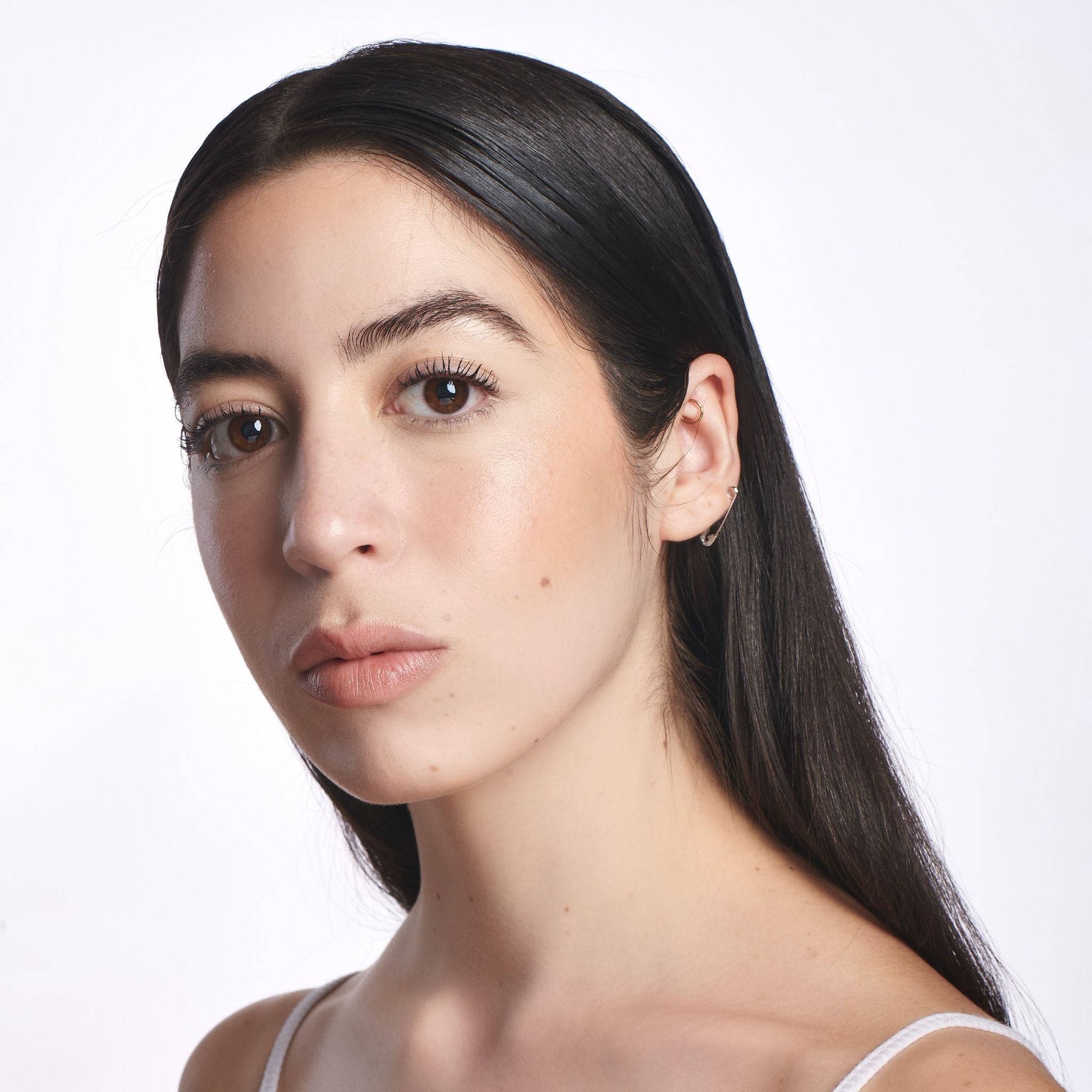
Beauty Commerce Writer
Tatjana Freund is ELLE.com’s Beauty Commerce Writer, covering makeup, skincare, and haircare products and trends. Previously, she worked at Marie Claire. She has bylines with Town & Country, Good Housekeeping, Harper’s Bazzar, and more. Tatjana is an advocate for Latinx representation in the beauty industry. Her work has been featured on the Drew Barrymore show. She’s a fan of whiskey neat, podcasts that give her nightmares, and one time Zoë Kravitz laughed at a joke she made.
